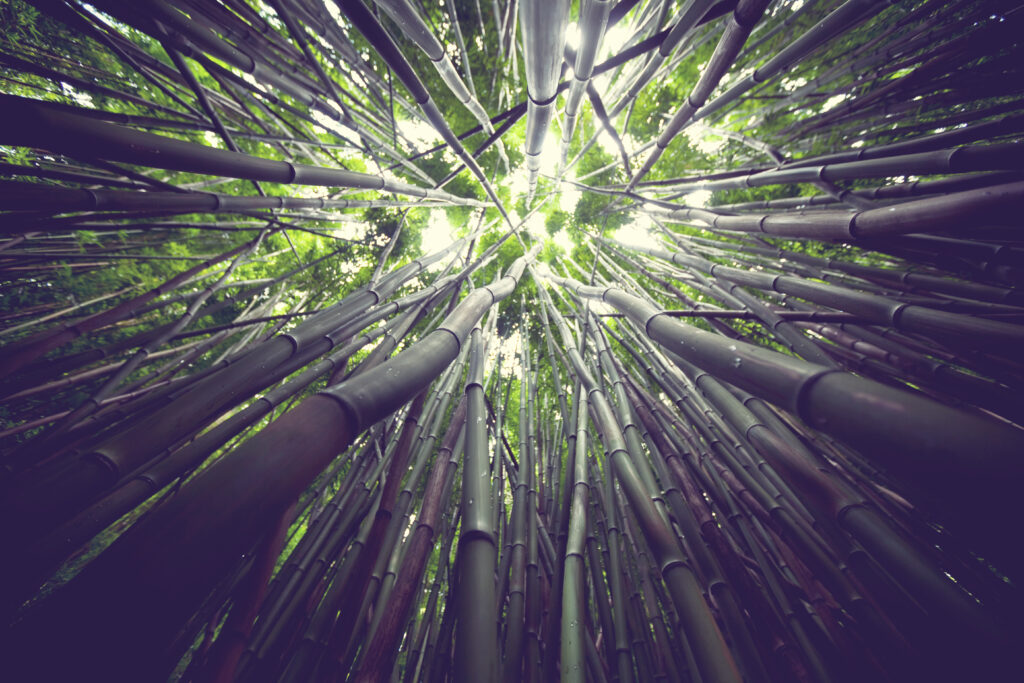In this article, we are going to explore the significance of bamboo in conventional Chinese culture. We will explore how the symbolism of ‘this magical plant’ is used by different artists and poets in their writing and other mediums to evoke a sense envigorating nature, solitude, and humility.
Characteristics of Bamboo
In traditional Chinese culture, bamboo is often seen as a symbol of strength and resilience. Bamboo is known to be a very strong and durable material, able to withstand heavy winds and rains. It is also known for its flexibility, bending and swaying in the wind without breaking.
Bamboo is also seen as a symbol of wisdom and knowledge. In many ancient Chinese texts, bamboo is often associated with scholars and wise men. This is because bamboo has been used for centuries as a writing material, for both books and scrolls. The fact that bamboo can withstand the elements but still be flexible enough to bend and move shows the wisdom of nature, something that humans can learn from.
Lastly, bamboo is also seen as a symbol of luck and good fortune. In many cultures around the world, bamboo is considered to be a lucky plant. This is because bamboo grows quickly and abundantly, providing people with food, shelter, and other resources. The luckiest bamboo plants are those that grow straight and tall with no branches or leaves blocking their path – these are said to bring the most good fortune to those who own them.
What is Bamboo Symbolized in Traditional Chinese Culture?
In Chinese culture, bamboo is often seen as a symbol of strength and resilience. This is because bamboo is a plant that can grow quickly and easily in many different conditions. It is also known for its ability to withstand strong winds and heavy rains.
Bamboo is also considered to be a symbol of luck and good fortune. This is because the plant is associated with the Mandarin ducks, which are considered to be a sign of good luck in Chinese culture. Bamboo is also often used as a decoration during weddings and other special occasions.
In addition to these positive associations, bamboo is also sometimes seen as a symbol of death in Chinese culture. This is because the plant can be used for funeral rituals and ceremonies.
How Does Bamboo Influence Everyday Life in China?
Bamboo is one of the most versatile plants in the world and has been used by humans for centuries. In China, bamboo has long been valued for its many uses, from building material to food and medicine.
Bamboo is an important part of everyday life in China. It is used to build houses, make furniture, create musical instruments, and even as a food source. Bamboo shoots are a delicacy in Chinese cuisine, and bamboo leaves are used to wrap dumplings.
Bamboo is also revered for its medicinal properties. The plant is thought to have detoxifying and anti-inflammatory effects, and is often used in traditional Chinese Medicine.
In addition to its practical uses, bamboo also holds great symbolic significance in Chinese culture. The plant is seen as a representation of strength and resilience, due to its ability to survive harsh conditions and bounce back after being cut down. Bamboo also symbolizes purity and simplicity, two qualities that are highly prized in Chinese culture.
Is there a Benefit to Collecting and Displaying Bamboo Constantly?
Bamboo has been a part of Chinese culture for centuries and is still widely used today. According to tradition, bamboo symbolizes strength, resilience, and perseverance. In addition, bamboo is also said to represent honor and nobility.
Today, bamboo is still used in many traditional Chinese ceremonies and celebrations. It is also a popular choice for gifts and home decor. Many people believe that bamboo brings good luck and fortune.
Collecting and displaying bamboo can be a wonderful way to enjoy its beauty and meaning. It can also be a great conversation starter, giving you an opportunity to share your knowledge of Chinese culture with others.
